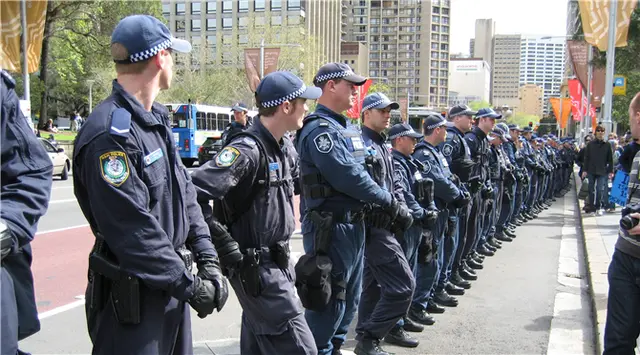Police were stepping up their presence in New Zealand's biggest city of Auckland Wednesday as critics prepared last ditch protests against the signing of the controversial Trans-Pacific Partnership (TPP) trade deal.
Ministers from the 12 participating countries will sign the deal at the city's central SkyCity convention center and casino at 11:30 a.m. local time on Thursday.
Business and farming leaders have been voicing support for the world's biggest trade deal, which involves the major economies of Japan and the United States, along with Canada, Australia, Brunei, Chile, Malaysia, Mexico, New Zealand, Peru, Singapore and Vietnam.
However, doctors, education groups, environmental campaigners, public servants, indigenous Maori, and a host of other special interest groups have expressed renewed concern that aspects of the 6,000-page deal will undermine national sovereignty in the member states by giving undue power to corporations.
New Zealand Police have come under fire for approaching activists in the run-up to Thursday's event to ask what their movements will be on the day, a measure that critics say is intended to intimidate and undermines free speech.
The anti-TPP group, It's Our Future, is anticipating thousands of people will turn out for a protest march in downtown Auckland and other New Zealand cities Thursday, saying polls show the majority of New Zealanders oppose the deal, which was negotiated in secret.
The New Zealand Medical Association, representing doctors, repeated its call Thursday for an independent assessment of the TPP on the country's health system, while the New Zealand Nurses Organisation said the government had ignored concerns over how the agreement would affect healthcare.
The New Zealand Council of Trade Unions (CTU) said the agreement would put working people at a further disadvantage, while giving more power to big business.
"There is much that can and should be done internationally to ensure that working people are valued more, but instead this agreement ensures that those that have power and money will have more power and money and those who don't will even have less," CTU economist Bill Rosenberg said in a statement.
The New Zealand government claims the TPP would boost the New Zealand economy by at least 2.7 billion NZ dollars (1.77 billion U. S. dollars) a year by 2030, but critics say the gains are slight and that forecasts have been inflated and fail to take negative impacts of the deal into account.
The signing is largely symbolic and the TPP will only come into effect when countries accounting for 85 percent of combined GNP ratify the agreement.
Analysts say this could take at least two years, and the process is looking uncertain in major players including the U.S. and Canada.
 简体中文
简体中文



